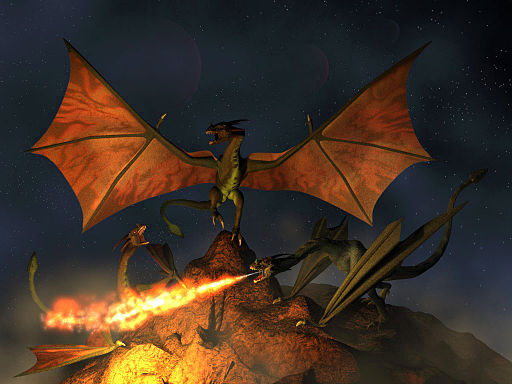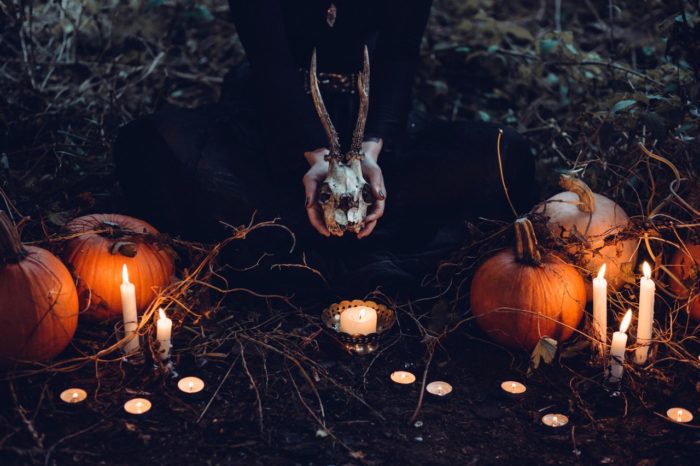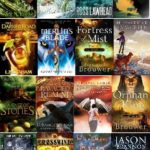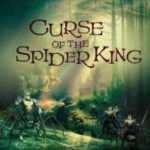Halloween, Evil, And Speculative Fiction
How evil must evil be? As we march steadily closer to Halloween here in the US, and the “celebration” of evil that the holiday has become, at least in some respects, I find myself thinking more about evil in fiction, particularly fantasy. Must fantasy include a unifying evil force that opposes the good?
We know in real life that there are evil people who do malicious and harmful things because they love to hurt others. But I suggest those are in the minority. Rather, any number of people would declare themselves neutral. They simply want to go along to get along. They don’t want to bother anyone else in hopes that no one bothers them. Are they evil?
Is the mom who did not get help for her troubled son or did not correct him when he started lighting fires in the neighborhood—and maybe even covered for him so others wouldn’t know about his issues—is she evil?
How about the guy who says he’s protecting others and in the process denies their freedom and right to choose? Is he evil?
The point is this: evil in the real world is not so easy to pin down—not without God’s clear standards. There are a number of Psalms in the Bible, even some by King David, that talk about the way of the righteous in contrast to the way of the wicked. But David was a murderer and an adulterer. Would he be part of the righteous or the wicked?
Sometimes I think our speculative fiction, because it is predicated on the trope of good versus evil, approaches the subject in a way that draws a stark line between the two, when in reality there is no such line.
Narnia certainly told stories with clear lines of a sort, but then Lewis slipped in “the good dragon” Eustace who was trying to protect the Dawn Treader rather than destroy it. But he was a dragon. Was he good or evil?
The Narnia books had central antagonists, wicked characters, such as Jadis in The Magician’s Nephew. But that book also includes Digory, who Aslan must rebuke, and his Uncle Andrew, who brags, from time to time, about his association with the witch. So was Digory evil, until he wasn’t? How about the somewhat repentant Uncle Andrew?
Ultimately, would a fantasy be strong if the only evil was “quasi-evil” acting independently and unattached from a clearly defined evil antagonist?
I think of The Lord of the Rings and the many evil characters in those books. Some were independently wicked, such as the white wizard-turned-to-his-own-way, Sauruman. What about Wormtongue and King Theoden? Or Boromir’s father, Denethor II? Or Bormmir himself? He wanted to force Frodo into giving him the One Ring to Rule Them All, so that he could protect Gondor. Was he evil?
The consequences of his actions seemed wicked. Are a person’s actions what qualify him as evil or are we to look at the character’s thoughts and intentions?
In truth, in the real world, all people are born into sin, essentially putting us into the camp of the enemy, as either a victim or a perpetrator, until we are rescued and transferred into the Kingdom of God’s own Son.
 Must Christian speculative stories show this ultimate divide between God and His enemy? Is that truly what sets fantasy apart as a genre because it can show the realities of spirituality in ways that other stories can’t? Or is it OK for stories to center on a dragon who is terrorizing the Lake Town or Shelob, the spider who guards the passage into Mordor? Can a story be about a Boromir who wants to accumulate power for himself as a means to do good, but by doing so, becomes the very evil he wants to defeat? Are those stories “evil enough”? Or must there be the over-arching enemy of all that is good that takes center stage in the conflict?
Must Christian speculative stories show this ultimate divide between God and His enemy? Is that truly what sets fantasy apart as a genre because it can show the realities of spirituality in ways that other stories can’t? Or is it OK for stories to center on a dragon who is terrorizing the Lake Town or Shelob, the spider who guards the passage into Mordor? Can a story be about a Boromir who wants to accumulate power for himself as a means to do good, but by doing so, becomes the very evil he wants to defeat? Are those stories “evil enough”? Or must there be the over-arching enemy of all that is good that takes center stage in the conflict?
Interestingly, in Lord of the Rings, the Dark Lord, Sauron, rarely makes a personal appearance. Yet, clearly, he is the motivating factor behind the forces aligned against the men of Gondor.
 I wonder which would be the scariest on Halloween: a dragon, a witch, a spider, an orc, Golum, a black rider, or a searching eye. Which, if it were real, would be the biggest threat? My guess is, the greatest wickedness would be the one we least fear. It’s familiar, comfortable even, without the dangerous elements we usually associate with evil.
I wonder which would be the scariest on Halloween: a dragon, a witch, a spider, an orc, Golum, a black rider, or a searching eye. Which, if it were real, would be the biggest threat? My guess is, the greatest wickedness would be the one we least fear. It’s familiar, comfortable even, without the dangerous elements we usually associate with evil.
And the parallel: which characters in our contemporary Christian speculative fiction are the scariest to our characters? to our readers?










































In a way I’ve kind of started to avoid using the word ‘evil’ lately, at least when referring to a person. More and more, wording things in terms of right and wrong, beneficial and not beneficial, etc. has made more sense to me. And with people, I’ve been more likely to call them problematic than evil.
To me, intentions, a being’s identity and future potential matter a lot, and are often what I judge when deciding if the person is good or bad. Everyone does both good or bad things, whether or not they know it, so the person and their behavior should often be separated. Usually I’d be most inclined to say someone is evil either because, in the moment, they made me that angry, or because the person seems to knowingly hurt others for fun or vengeance or whatever, and they can’t stop because it’s within their nature.
But if it’s truly in a person’s nature and they can’t stop, then that gets into whether or not someone can truly be blamed or hated for something they can’t help. In either case, that’s where viewing someone as a problem instead of evil can come in. Whether or not the person is evil or good, their behavior can still be an issue, and should be looked at in terms of a problem to solve in the most constructive and merciful manner possible.
Interesting perspective. I don’t know that the Bible ever calls anyone evil, either. It refers to the wicked and the lawless, and it says all have sinned, that no one is righteous. But evil? I can’t think of an instance when the Bible says people are evil.
But I tend to think, in fantasy, the over-arching antagonist, the character that is truly evil, such as Jadis or Sauron or Voldemort, aren’t “people” in the sense that humans are. They identify a greater force of evil than any human can deal with. But I wonder if current stories are more “horizontal,” if you will, dealing with people and governments that are nothing more than imaginary and not intended to uncover truth about the spiritual world at all.
Becky
Hm…I think a lot of stories try to uncover truth about human nature, but whether or not they try to uncover spiritual truth just depends on the story and author. But I think depicting struggles in a more realistic manner and revealing human nature can uncover a lot of truth about the spiritual world, since it can give insight to our interactions with God and other spiritual matters. I don’t have a problem with Jadis and Sauron like villains, but relying on that style of story for spiritual truth can lead to toxic oversimplifications if we aren’t careful.
Does Halloween celebrate evil?
I don’t think so. Whatever it was (pagan af), it’s now turned into a subversion holiday (I’m not entirely sure I’m using the right technical word), for highly structured societies to subvert that order and blow off steam.
I thought about that too, when I wrote that line. I’d say, it’s moving in that direction. I’ve seen it morph in the US from a holiday that was mostly for kids, with lots of fun and interaction in the community, to one in which kids aren’t safe to participate any more, and mostly parties and decorations and “safe” gatherings mark the way people treat the day. Of course, I don’t know about other places or even other cities. Might be different.
Kinda reminded me about alignments. Could be fun if everyone mentioned their Moral Alignments and why they think of themselves that way. (There’s different ways of defining each alignment, so it’s probably good to include a bit of explanation as to which definition is actually being used) According to this explanation, I’m Chaotic Neutral:
https://i.pinimg.com/564x/5a/a8/6e/5aa86e543c96868cdcefefb806f04e4f.jpg
With a lot of other charts/alignment definitions it seems to be a lot harder to pin down what I actually am, though, so Chaotic Neutral definitely isn’t always a label I’d take.
A good reminder of one of my favorite thought exercises: whenever I watch Lord of the Rings, I always want to be Aragorn, but I know deep inside I’m more likely to be a Boromir. That is a sobering thought and makes him one of the more “scary” characters to me. (And of course I mean watching the animated version so I can listen to John Hurt’s excellent Aragorn voice!)